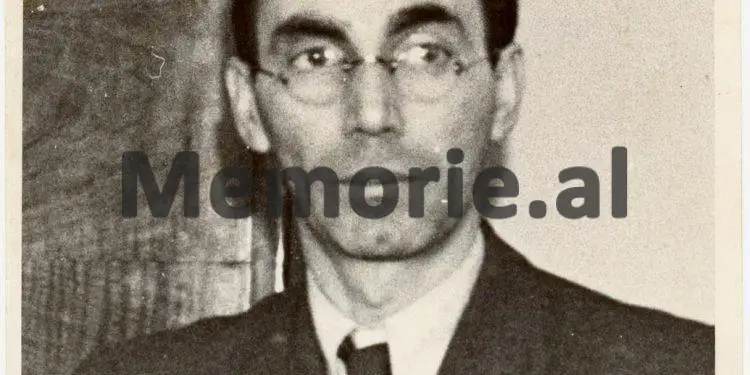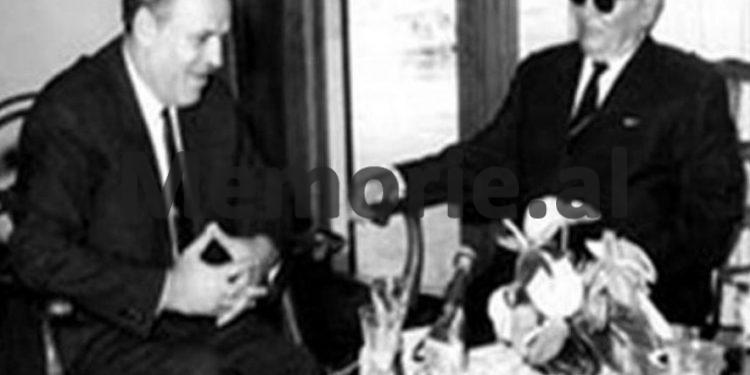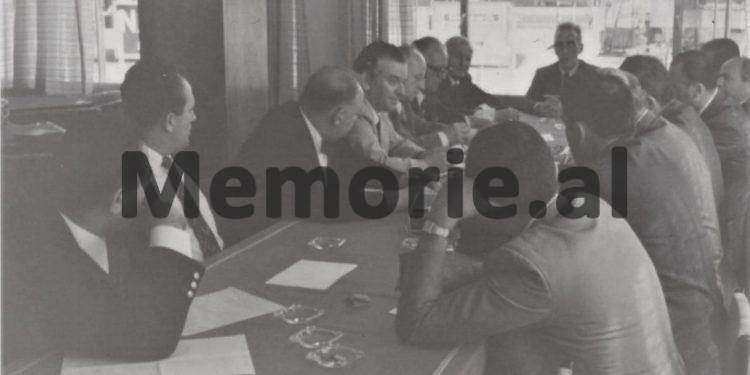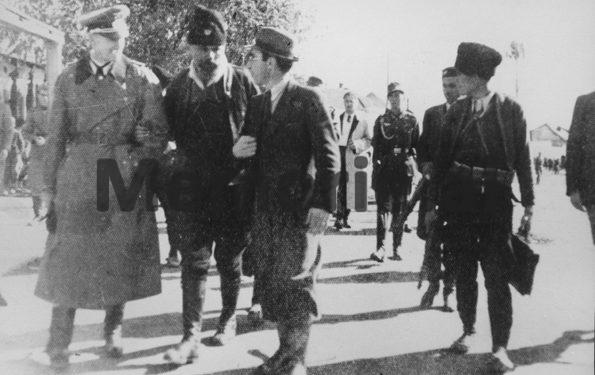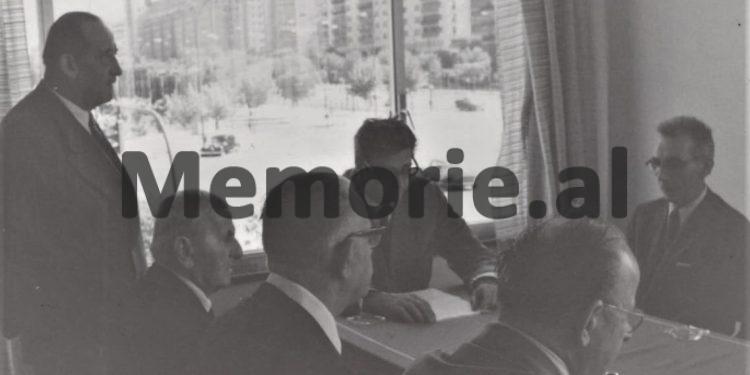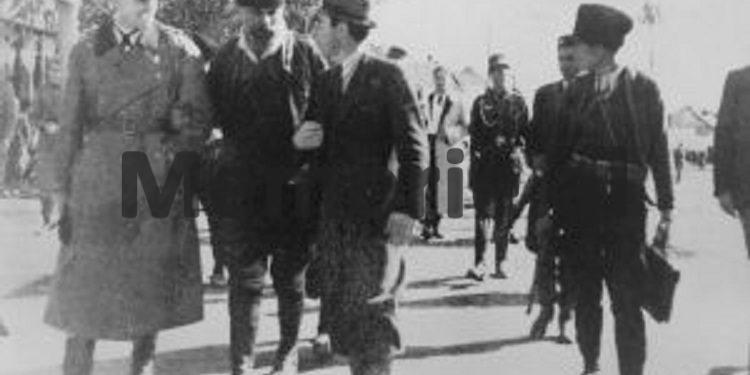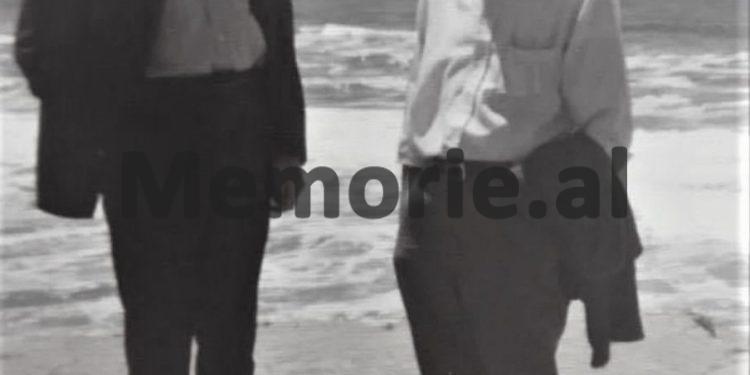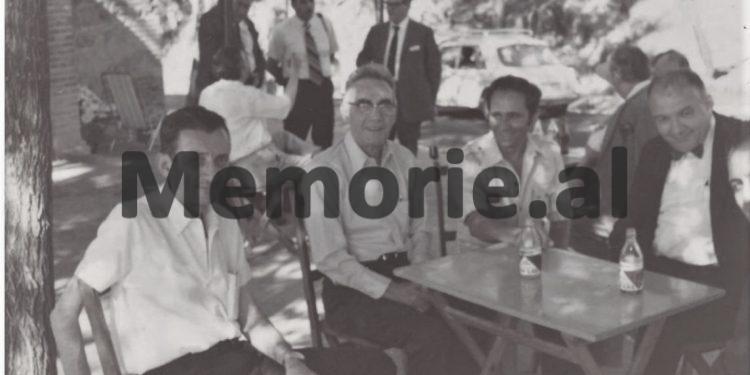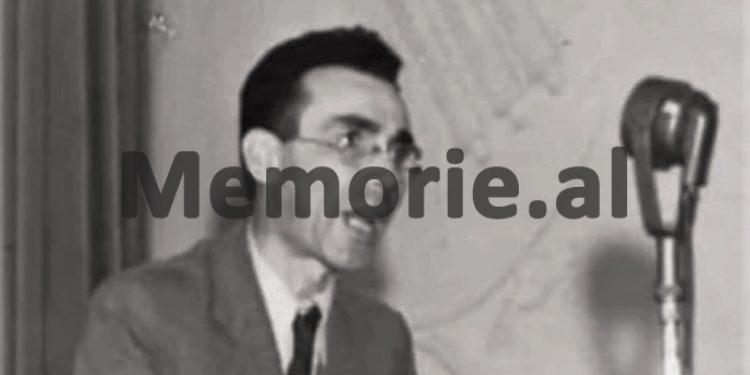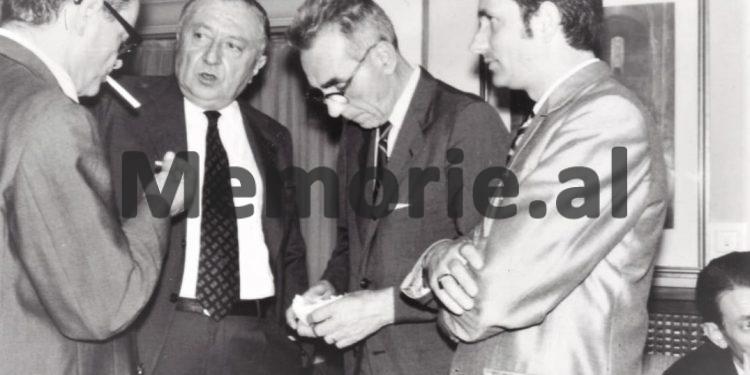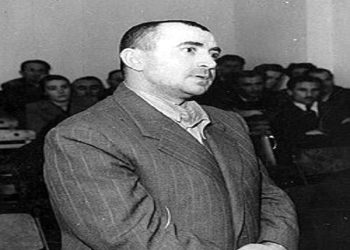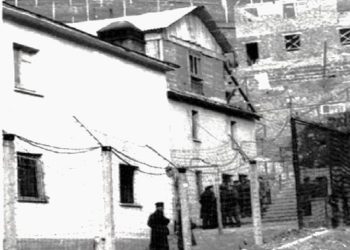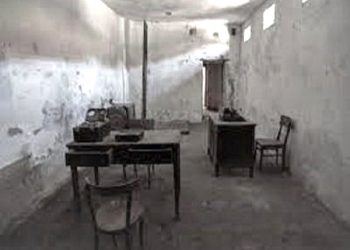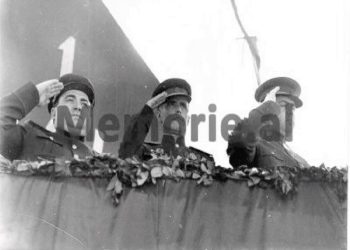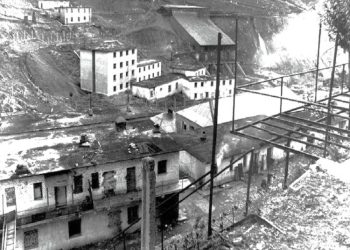By Idriz Lamaj
The fourth part
From the works of the apostles of ethnic Albania
Xhafer Deva
In light of his own letters and other diaspora revelations
Foreword
Memorie.al/ Probably like many others, I often browse letters with my friends and associates, who are no longer in this life. Browsing through them, for a moment unfolds memories that it seems to me that some of them can serve our history. Then, I return to the awareness of the current difficult situation in the ethnic homeland, caused by the quadruple of Albanian politics, I say to myself: “What can my memories of others or the letters of the people of dead? ”
Without being the ominous instigator of pessimism, thinking as always of a better future, I return to my obligations to my friends, and as an icy observer of time, without any claim of historical service, when I am given the opportunity of publication, write what I have in mind, always based on their writings and letters. This principle is also followed in this book about Xhafer Deva. I knew Xhafer Deva in person; we exchanged visits and had a strong correspondence.
I spent days off at his house and inherited all of Xhafer Deva’s correspondence with Rexhep Krasniqi, his closest friend, for more than 40 years. After many years, I talked on the phone with Mrs. Deva’s daughter and son-in-law. In the conversation going on, taking advantage of the old friendship, I asked about his letters and they informed me that it was all Qefali Hamdia, a friend of their family.
In June of last year (2001) I went to Kenosha, Wisconsin, a guest of Qefali Hamdia, to look at Xhafer Deva’s correspondence, which Mrs. Deva sent her years ago, when she, due to her advanced age, was closed his house to go to the house of his 5th daughter and son-in-law, Mrs. Burgl Dagmar and Rev. Dennis Logie.
After reading the bulk of the letters, in the languages I knew, I took with me more than a thousand pages of his correspondence, covering a period of over 30 years, 1945 – 1978. Xhafer Deva spoke and wrote seven – eight languages. His correspondence is: Albanian, English, German, Italian, French, Turkish and Serbian. Xhafer Deva’s letters and writings, with the exception of those in Old Turkish and Serbian in Cyrillic, are mostly typewritten, well-kept, and alphabetically arranged, with the persons he dealt with.
That includes his family letters. He carefully kept a copy of every letter he sent and every letter he received. Mrs. Oswalda Deva, daughter Burgl, son-in-law Dennis Logie and Mr. Qefali Hamdia with family, expressed his heartfelt thanks for the trust they gave me. With special gratitude I recall here the help given to me by my brothers – Captain Nue Gjomarkaj and Nikoll Gjomarkaj, in the preparation of one of the most important chapters of this book.
Kapidan Nou, in addition to making available the subject on Xhafer Deva’s relations with the ‘Independent National Bloc’ and sending paratroopers to Albania and Kosovo, reviewed with me each document of that period, and we formulated the text in the form of a conversation; while Nicholas, deciphered the letters, transcribed and translated from Italian, the unpublished materials to date, which were published in this chapter.
Continues from the last number
Xhafer Deva’s life and activity in exile
– Kosovo in the time of ethnic Albania –
Xhafer Deva in the light of his own letters
Before the capitulation of Italy, I was in Albania three times. Kosovo was liberated but not incorporated with Albania. The Minister of Free Land was the late Ekrem Vlora. We were guests of Fuad Dibra. I met many “leaders” of that time, such as Mit’hat Frashëri (chairman of the ‘National Front’), Mustafa Kruja (prime minister), etc. While the so-called “Italophile and fascist” tried to provide food for the people. The Ballists were doing the policy of the Allies; the hopes were that the Allies would land in Albania, etc. The Yugoslav-led Communists were active and had secured the support of the British.
With the capitulation of Italy, the situation in Albania underwent a drastic change. The Germans were aware that Italy would capitulate. They had taken appropriate measures. Within hours, Albania was invaded. There were two German and not Italian divisions. But someone was interested in making an agreement with the Germans in Belgrade. An agreement that foresaw the inclusion of the whole of Kosovo with Albania, the non-interference of the Germans in the internal affairs of Albania, the neutrality of Albania and the provision of the Albanian currency through the outpouring of gold in the National Bank in Tirana, the conditions that enabled the Assembly to elect The High Council, the Parliament and the government, etc.
However, the ‘National Front’, convinced that the Allies would win the war (the whole world knew that Germany had lost the war with America entering the war against it), kept in touch with the British missions, which fully supported the Communists, (see the book by the English Brigadier, ‘Trotzky’ Davies) and listen to the BBC (British Bradcasting Company). Kosovo idiots (refers to himself, I.L.) had brought power to Albania. Thanks to this power and with some nationalist groups, not of the ‘National Front’, with the exception of the youth of Tirana, they somehow managed to put the communists on the defensive and restore peace and security in Albania.
In June 1944, those affected by the Kosovars’ takeover of state power were asked to take over the government. The ‘Kosovo Group’ had no choice but to withdraw to Kosovo. After we left, the government gave Fiqiri to Dines. How do we learn from the book of the German minister, Dr. Hermann Neubacher, the first step of the government of Fiqiri Dines, was to present a plan to the German minister to supply Albania with 20 tanks, ammunition and weapons, etc., advised by the British mission at the house of Abaz Kup in Kruja, which was not accepted by the Germans, under the pretext of the lack of Albanian personnel, trained to use German tanks.
With the failure of this request, Fiqiri Dines has no choice but to resign from the High Council. The mandate was entrusted to Ibrahim Bicaku, as he had the German trust. With the arrival of Ibrahim Bicaku at the head of the government, the communists were encouraged by this change, resurrected and went on the offensive. Within a short time, the communists were rapidly taking over the cities of Albania. Ibrahim Bicaku could not even escape. There was hope that his former employee, Enver Hoxha, would forgive him. Ibrahim Bicaku owned a cigarette factory and Enver Hoxha was the seller of cigarettes in the Tirana branch.
His fate was to spare his life, but to keep him in prison. Thus ended the black Albania, together with Ibrahim Bicaku. Mit’hat Frasheri, the great Anglophile, managed to escape with the help of the Germans from Shkodra to Italy, believing that the English would be waiting for him there with flowers. “The British gave him and some of his friends a tent in the mud in the Italian camps.”
In a letter, Shllaku asks Xhafer Deva about Anton Harapi and his withdrawal from the government. Deva responds on December 26, 1973: “I do not know the source of the information you have on the events after the capitulation of Italy on September 8, 1943, especially on the fate of the late Father Anton Harapi. I will try to explain chronologically the events of that time. The capitulation of Italy was well known by the Germans. German military and diplomatic moves were ongoing. My friend, Dr. Hermann Neubacher, Special Envoy of the German Foreign Ministry for the Southeast, had arrived in Belgrade and on September 4, I had to fly to Belgrade. His secretary received me at Zemun airport and we arrived in Dedinje, at the German Army Headquarters, “Southeast”.
After he explained to me the reason for the meeting, the problems were raised for discussion. A program was compiled there, to include the conditions of the German stay towards an Albanian government that was to be created soon in Tirana, with the assurance from the German side, such as: independence, neutrality, unification of Albanian lands with Albania of 1913, annulment of all laws imposed during the Italian occupation; the monetary issue, i.e., the non-intervention of the German army in the affairs of the Albanian government, etc. The creation of an Assembly was also foreseen, which was later named Assembly.
Without wasting time, I left for Mitrovica and continued the road to Prizren (by car). There was a meeting in order to create the organization of all Albanian lands, called the Second League of Prizren. On September 8, at night, I arrived in Shkodra. It was there that the capitulation of Italy was learned. I continued my way to Tirana together with the secretary of Dr. Neubacher, Dr. Stärker. A joint meeting of 22 men was held in Tirana, led by Ibrahim Bicaku (son of Aqif Pasha), in the Municipality of Tirana. Ekrem Libohova’s government was in power, with no power in hand. Within two days of this meeting, an Executive Committee came out, with the task: to accept the resignation of the government, the strengthening and normalization of state administrative life, the preparation of a National Constitutional Assembly, etc. etc. Ministers were appointed for each department. I was in charge of the Minister of Internal Affairs.
Within a fairly short time, the Assembly was formed. Kosovo representatives were elected by free vote in Kosovo. In Albania there was no possibility of holding elections. The delegates, for each sub-prefecture, were appointed by a commission chaired by Lef Nosi. The assembly was held and all the points listed above were met. Idhomen Kosturi was to be the President of the Assembly. Sadly, the same day the communists killed Idhomen. Thus, of the two vice presidents, Mr. Rexhep Krasniqi and Mark Gjomarkaj, Mr. Mark handed over the presidency to Rexhepi.
The members of the Council of the Regency were elected on the spot, and with the exception of the pardon of Father Anthony, all took the oath. Father Anton Harapi could not take the oath without the Pope’s consent. The Assembly was transformed into Parliament and on the first day of the opening of Parliament, Father Anthony also took the oath. Through the German Ambassador in Rome, the Pope’s consent arrives fairly quickly.
The first session of the High Council was held and on this occasion it was decided that the Statute of Lushnja be accepted as the Constitution of the Albanian State. According to the Statute of Lushnja, the presidency is rotated, accepted by Mehdi Beut, who was elected mayor by his friends.
However, Father Anton Harapi remarked that he could not sign a death sentence, which was gladly accepted by Mehdi Frashëri. Fuad Dibra died, one of the members of the High Council. This too was approved by Mehdi Beut. Lef Nosi, as a wise and intelligent man, had no ambition to become president. Mehdi Bey, however, not only held the presidency, but always interfered in the competencies of the government. Father Anton Harapi did not like the behavior of Mehdi Bey at all. For the respect we had for Patrin, at the same time the friendship with him, we knew his troubles. So one day he called me, he wanted to see me separately.
On this occasion he said to me: “Xhafer, I cannot! Can you talk to Dr. Neubacher, who was in Tirana, to fly with him to Austria? I replied: Pater, I will take care of you, and so it was. Dr. Neubacher had a special aircraft available. One night, it was the end of June; Patri left with Neubacher and arrived in Belgrade. After a few days, Patri left for Hall and Schwac, Austria. In these two small towns of Austria, Patri has spent several years in his youth. Patri also knew German well.
Unfortunately for him, Patri was not very comfortable there either. Certainly there is spiritual suffering. Without waiting and without remembering, one day we were in Prizren, when Patri came to my office. (us, i.e., the ‘Kosovo Group’ in government, had resigned and were withdrawing to Prizren). He asked for help to secure his trip to Shkodra. I left in a car of my own.
Dr. Neubacher, in his book (Sonder-Auftrag SüdOst) mentions the flight of Father Anton Harapi, his stay at his home in Belgrade and his return to Prizren. Finally, it says:
“Patri, after a few weeks returned to Albania, where death awaited him. No revolution can extinguish the light of this man. The eternal light, which he has served, will shine upon him forever! ”
This is how they loved Mr. Shllaku, the truth is very bitter and not as spoiled mouths comment.
I’m closing it today with that. During his oath in Parliament, Patri spoke these words, addressing the officers of the Albanian army:
“Where are you, officers, and men holding the spatulas?” Do you not know that your coffins are your coffins? Now is the time”!
* * *
In one of his files, there are two of my letters where it is seen that I pressured him to write about February 4 and the “Kosova” Regiment. I was impressed by his silence on the allegations about the February 4 massacre and the alleged crimes he had committed. Xhafer Deva was silent and in the greatest calm it was seen that he did not pay any attention to the accusations in question. He kept saying: “Rexhepi knows everything, they are slander, and we should not deal with the lies of the communists.” In a letter sent to Krasniqi, (8.12.1971) Xhafer Deva writes:
“Idrizi insists that these are no longer slander but accusations. He is not distinguishing between slander and accusation, and he is of the opinion that my silence reinforces the accusation. He says: “You should definitely give your version and explain the circumstances of the events you are accused of, at least as much as you know and as much as you remember.” Desert Idrizi, do not know the intrigues that have been hatched against us, by both sides, nationalists and communists! They do not know that I am also accused of killing those two ballistas, I do not remember their names, when our Albanians knew that they were robbed by the sons of Baba Muslim and executed by them, or those others who shot the Germans, when I was not in Tirana at all. Idrizi does not know many things of that time …, etc. “.
I could not persuade Deva to write more, although he mentioned two or three times in his letters: “One day we will sit down together and talk about these issues.”
DR REXHEP KRASNIQI WROTE FOR FEBRUARY 4
After the death of Xhafer Deva, at my insistence, Dr. Rexhep Krasniqi wrote something about February 4, in the book we prepared for Deva:
Furious campaign against Kosovo
Immediately after the break-up of the Mukaj agreement, in August 1943, the communist party of Albania, certainly with the postponement of its Yugoslav organizers, started a fierce propaganda and fratricidal campaign, especially against the members of the ‘National Front’. At the same time, the communists are organizing a wide-ranging, whispering and press campaign against Kosovo and Kosovars, with the calculated aim of discrediting the idea of ethnic Albania, with which the ‘National Front’ had won a plus in the people.
The campaign in question reached a milestone after the formation of the new government and the military and propaganda losses suffered by the Bolshevik movement in Albania, losses in which Kosovar political and intellectual personalities, as well as the “Kosovo” Regiment, had played a significant role. All sorts of dirty slanders were circulated, such as saying that Kosovars are an ignorant mass, who had to endanger the balance of the composition of the Albanian state population, that they are slaughterers, kill our innocent youth, dishonor our girls, rob merchants and peasants “, and a thousand other blacks.
In connection with the above, here we record an ugly event that took place in Tirana, at the beginning of 1944, which was used by communist propaganda to spread such slander against Kosovars. Two non-Kosovar public security officers had abused their duties, removing two communist partisans from prison and dishonoring them. Within hours, by personal order of Minister Xhafer Deva, after the investigation of the case by a military court, the officers in question were sentenced to death and executed the next morning, in the park of today’s “Skenderbej” Square. The inhabitants of Tirana at that time are witnesses to the event in question, their names and places of origin.
Even for the cleansing action that took place on February 4, 1944, against the communist partisans who daily terrorized the inhabitants of Tirana and other provinces with brutal assassinations, with actions of looting commercial warehouses and warehouses with food and goods of the state. Communist propaganda, for years, fills the world with hypocritical shouts and accusations against Kosovars and especially against Xhafer Deva.
It is necessary that the action in question was carried out with the consent of the Ministry of Interior, which was headed by Xhafer Deva, but the truth is that the “Kosovo” Regiment that night performed only the duty of ordinary guard in the city and did not participate in actions that I dedicate my life to some of their well-known communists and terrorists.
The actions in question, everyone knows, in reality were carried out by a group of fighters who were not in the service of the government and were led by Mr. Xhelal Staravecka, a former Albanian officer who was one of the most active leaders of the communist partisans, on a scale with comrades Mehmet-Enver, as confirmed by Dushan Mugosha, one of the Yugoslav organizers of the Communist Party, in his memoirs entitled: ” When I was in Albania “. In September 1943, after the capitulation of fascist Italy, Staravecka, a man with pathological ambitions, for reasons that can only be speculated, sided with the new government of Tirana.
In his passage, perhaps to explain the reasons that pushed him to leave the communist movement, he published a series of pamphlets, in which he exposed the brutal methods and horrific acts of torture of the communist partisans, against the captured Italian military and the youth. Albanians who had been forcibly recruited by the party. “(Xh. Deva – Life and Activity, N.Y. 1980, pp. 85-86).
Krasniqi continues in his article about the profound psychological effect of communist propaganda against Kosovars on a part of the Albanian youth and population in Albania. He also accuses the communist government of Tirana of the Bar massacre. According to Krasniqi, close to 2,000 Kosovars pass hand in hand through the territory of Albania (Kukës-Shkodër), being spit on and cursed with “dirty traitors”, and finally executed by the Serbo-Montenegrin forces in Bar. Memorie.al
The next issue follows




